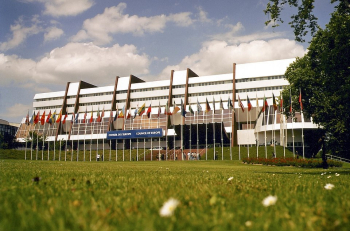
Just as Turkey began debating leaving the world's first treaty prosecuting femicide and domestic abuse, a jealous killer set a woman's body on fire and covered it in cement.
Pinar Gultekin's murder in July shocked the mostly Muslim but secular country, quite possibly helping stall its departure from the 2011 Istanbul Convention -- a document once lauded by the government of then prime minister Recep Tayyip Erdogan.
Gultekin's confessed killer, Cemal Metin Avci, claimed to be the 27-year-old university student's boyfriend, acting "in a moment of anger".
Gultekin's family denies this, accusing him of being a stalker who became enraged when she blocked him on social media after discovering he already had a wife.
"In a period where violence against women and femicides are increasing, it would be bad legally to withdraw from the convention," the Gultekin family's lawyer, Rezan Epozdemir, told AFP.
"This planned, organised murder should be punished with aggravated life imprisonment," the lawyer said.
Instead, Turkish feminists fear Avci, once tried, could avoid jail thanks to "good behaviour", which has in the past included things such as wearing a clean shirt in court.
- Turkish society split -
Gultekin is one of 209 women killed in the first eight months of 2020 in Turkey, where the rate of femicide is rising each year, according to the We Will Stop Femicide women's rights group.
Only three weeks before her death, Numan Kurtulmus, a top official in Erdogan's ruling party, raised the prospect of dropping the treaty Turkey took pride in helping craft.
Signed by 43 countries and the EU, the convention requires governments to adopt legislation prosecuting domestic violence and similar abuse.
For Turkish conservatives, who have been on the political ascent in the years since the treaty went into force, these laws hurt family unity and encourage divorce.
Some, including Kurtulmus, claim that the treaty's references to equality are being used by the LGBT community to gain broader acceptance in society.
But to Berrin Sonmez, a Muslim feminist and activist, such charges mask "hostility to women" and gender equality.
This divide runs across Turkish society and even splits the family of Erdogan.
The president's younger daughter Sumeyye Erdogan Bayraktar, who is the deputy head of the Women and Democracy Association, published a piece defending the convention in August.
But Bilal Erdogan, the president's younger son, sits on the advisory board of the Turkish Youth Foundation, which recommended dropping the treaty in July.
- 'No contradiction' -
The debate grabbed headlines when Kurtulmus, who is the deputy chairman of Erdogan's Justice and Development Party (AKP), declared on July 2 that Turkey was "wrong" to ever sign up.
Pundits thought Erdogan might announce Turkey's plans to withdraw at a party conference on August 5.
That meeting ended up being postponed after the discovery of Gultekin's remains.
When the party did meet on August 18, AKP spokesman Omer Celik said only that "work continues on the issue".
"We don't see a contradiction in strengthening women and protecting families," he said.
Fearing that this means Turkey's withdrawal is imminent, the convention's defenders are trying to raise public awareness, which appears thin on the ground.
One poll last month found seven percent of those surveyed believed Turkey should withdraw and 36 percent said it should stay -- but 57 percent said they had no opinion at all.
Sonmez, the feminist activist, said awareness was growing with every week.
"The public now knows it better than (the government) wanted them to," she told AFP.
The main opposition Republican People's Party (CHP) has launched a street campaign across Istanbul's 39 districts, plastering them with posters and organising rallies that have drawn thousands.
Anger over a possible withdrawal has spilled out online, where women have shared black and white photos demanding the convention's enforcement.
- 'Makes me worry' -
Survivors of domestic violence watch the debates with alarm.
Hasret Camoglu, who suffered years of abuse after her arranged marriage at the age of 16 went wrong, said her husband had only been sentenced once, to 120 days in jail, which the court converted into a financial penalty.
The attacks continued until he assaulted her with a screwdriver in front of the couple's children. She suffered life-threatening injuries, and the husband was put behind bars for 11 years.
"When I hear debates over the convention, it makes me worry that our rights will be taken away," Camoglu told AFP.
Before he was jailed, Camoglu's ex-husband was one of many Turkish men who succeeded in obtaining a lesser sentence for "good behaviour".
She said he "gave excuses like the clothes I wore and the friends I met", which the court accepted as mitigating factors.
Adile Dogan, an activist with the Esenyali Women's Solidarity Association, said the convention has helped protect women, despite systemic failures in court.
"The period before and after the convention is very different," Dogan said. "Protection orders are now immediately given."AFP

















